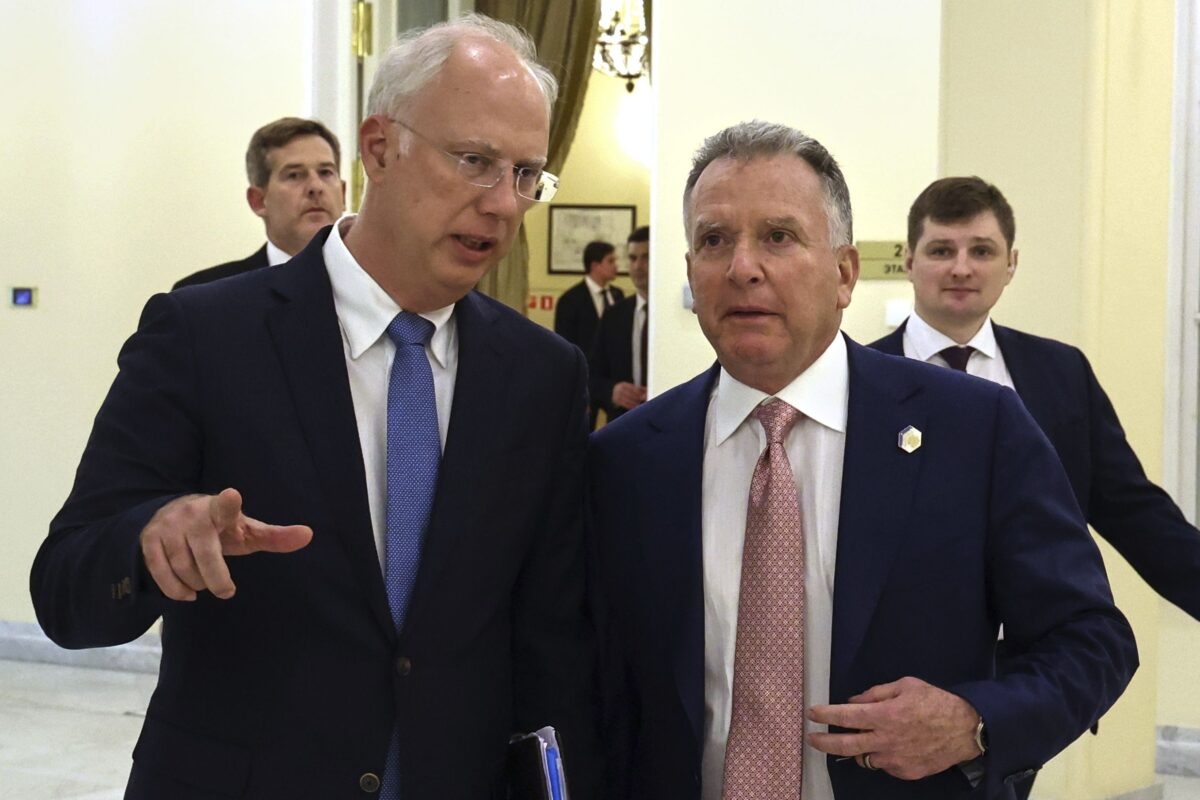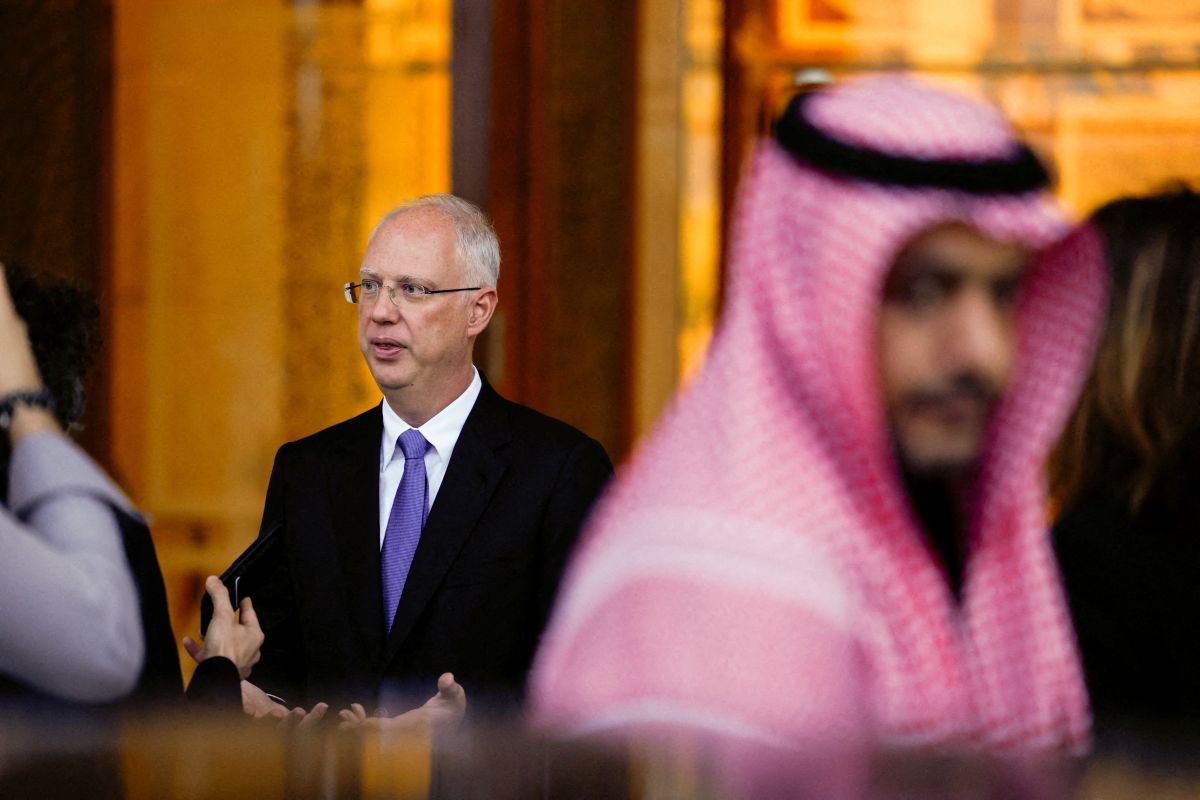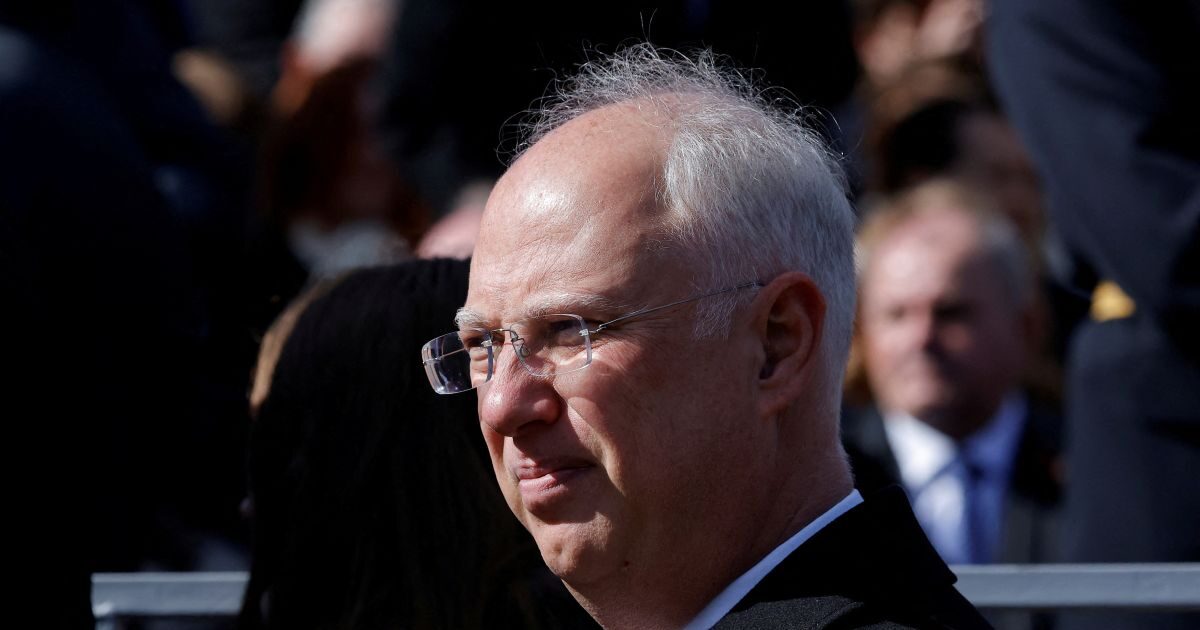Kirill Dmitriev. A low-key investor with a cosmopolitan air, one Russian diplomat who some see as a propagandist and others as the only channel to a possible deal with Ukraine.
Dmitriev’s simultaneous action as a representative of the Russian government and as a supporter of peaceful resolution makes him a controversial figure. Whether he is rated as a “propagandist” or a “key to peace” in Ukraine depends on whether he focuses on advancing Russian goals or pushing for a peaceful settlement.
At a time when Russia remains isolated from much of the West, his name is increasingly coming up behind the scenes of diplomacy. He is not a classic diplomat, nor a general, nor a fanatical ideologue. He is a 50-year-old cosmopolitan, educated at Stanford and Harvard, comfortably to the American television cameras and with a resume that starts from Kiev and goes up to the darkest decision-making rooms in Moscow.
His recent involvement in an unofficial peace plan for Ukraine is causing a stir, but also questions: Is this silent “technocrat” the secret communication channel between Russia and the US – or just a Kremlin propagandist?
The Russian envoy unlike any other
Kirill Dmitriev stands out from the first moment. He speaks perfect English, moves comfortably in the corridors of Washington, while his passage through the American university system makes him look more like an international investor than a Kremlin man.
As head of the Russian Direct Investment Fund, he has been at Vladimir Putin’s side for years, but at the same time he is cultivating relationships with US officials – and especially with the Trump administration. There, he also found the person he works with the most: him Steve Witkoffspecial envoy of the US government.


Their recent three-day meeting in Miami created a political earthquake. From it emerged a draft peace plan for Ukraine, which many describe as “Putin’s dream”: ceding territory and reducing the Ukrainian army. Dmitriev’s team avoided any comment, while Volodymyr Zelensky responded without closing doors: “Peace must be dignified.”
Raised in Kyiv with eyes on the West
Few in Moscow understand Ukraine as well as Dmitriev, comments the BBC article.
He grew up in Kyiv, the son of two leading scientists, and – according to his friends – at 15 he participated in pro-democracy demonstrations against the Soviet Union.
His relationship with the US started early, with a student exchange program in New Hampshire. Later, Stanford and Harvard brought him even closer to Western thought, while his career at McKinsey took him halfway around the world.
Even then, before he became part of the Russian elite, he did not hesitate to criticize Putin.
In 2003 he wrote in Vedomosti that “the people understand when the law is respected and when it is used as a tool of influence”.
His relationship with the Trump administration has evolved into one unique channel between the two countries. In 2025, he helped free an American professor from a Russian prison. Steve Witkoff publicly acknowledged this to him: “Kirill played a decisive role. He was the bridge man.”
Their joint appearances multiplied at conferences, meetings in Saudi Arabia and closed discussions on the economy. Dmitriev makes no secret of his admiration for Trump, praising his diplomatic skills and making sure to advance the Russian narrative in a polite, almost televised manner.
Dmitriev is very comfortable with the American media. With a low profile and careful language, it repeats Moscow’s positions in a way that does not resemble blatant propaganda.
And yet, not everyone is convinced. When Trump announced sanctions on two Russian oil giants, US Treasury Secretary Scott Bessant publicly called him a “Russian propagandist”, sparking intense debate about his role.
Sanctions, close relations with the Kremlin, Innopraktika and the TV presenter wife
Despite his international image, Dmitriev remains deeply connected to the Putin system. In addition to its role at RDIF, he is married to Natalya Popova, a TV presenter and close associate of Putin’s daughter, Katerina Tikhonova. Both move in the inner circle of Innopraktika – a company that symbolizes the Kremlin’s new technocratic elite.


In 2022, the US labeled RDIF a “Putin tool fund” and imposed sanctions.
In Ukraine, the situation is even worse: he has been sanctioned for “crimes against the country”.
Despite his political dimension, Dmitriev never abandons his business side and pursues opportunities.
He proposes joint US-Russian energy projects in the Arctic, investments in rare earths, and even an $8 billion tunnel under the Bering Strait — the famous “Putin-Trump tunnel”.
He even has proposals for space partnerships: Russia giving Elon Musk a small nuclear reactor to send to Mars.
Simply put, Dmitriev is the man who can comfortably talk to both Putin and Trump and moves expertly between secret diplomacy and propaganda.
And this puts him in a strange position: In Moscow he is on the rise, in Washington he attracts attention, in Ukraine he receives severe criticism.
It remains to be seen whether it is indeed the conduit for a real peace or just the most elegant vehicle for Russian propaganda in the West.
